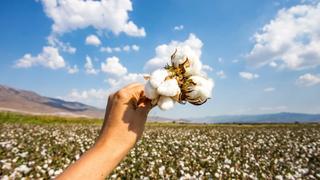The sugar industry in Tamil Nadu hopes the State government will shift to a pragmatic policy on sugarcane pricing from the current season.
The State government has to emulate major sugar-producing States such as Karnataka, Maharashtra and Andhra Pradesh, which have shifted to a revenue-sharing formula based on sugar prices, say sugar mill representatives and farmers. A delegation, including farmers, visited Karnataka to study the working of the revenue-sharing model.
In Tamil Nadu, there have been multiple rounds of tripartite discussions between farmers, sugar mills and government representatives to arrive at a new pricing policy.
Importantly, sugarcane planting will start for the 2018-19 season, and if the issue is resolved, it will encourage planting. There has been a steady drop in sugarcane acreages due to extended dry spells in recent years, culminating in the lowest estimates of output for the current season.
In the current 2017-18 season, sugar production will hit a new low of less than 6 lakh tonneswhich is also less than one-fifth of the installed capacity, the Southern India Sugar Mills Association-Tamil Nadu estimates.
In 2016-17, sugar mills in the State produced 10.65 lakh tonnes (lt) of sugar from about 119 lt of cane as compared with the previous season’s 13.61 lt from 156 lt of cane.
The statutory Fair and Remunerative Price of sugarcane for 2017-18 has been set at ₹2,550 a tonne, linked to 9.5 per cent sugar recovery. This FRP is 10 per cent higher than that fixed in the last season.
A senior executive at SISMA-TN, who did not want to be named, said that during the last season, the sugar mills had paid over ₹250 more than the FRP, including transport charges of harvested cane and an additional payment of ₹125 a tonne.
RV Giri, National President, Consortium of Indian Farmers Associations, said farmers are willing to consider a viable new pricing policy over the FRP provided it is made statutory to protect farmers’ rights, and mills make the payments in 14 days.
Sugarcane pricing should be determined at the field level, with sugar mills continuing to bear the entire transport charges. Harvest charges should also be borne by the mills, as is done in North Karnataka, or the harvesting charges should be controlled, as is the practice by mills in South Karnataka, he said.






Comments
Comments have to be in English, and in full sentences. They cannot be abusive or personal. Please abide by our community guidelines for posting your comments.
We have migrated to a new commenting platform. If you are already a registered user of TheHindu Businessline and logged in, you may continue to engage with our articles. If you do not have an account please register and login to post comments. Users can access their older comments by logging into their accounts on Vuukle.